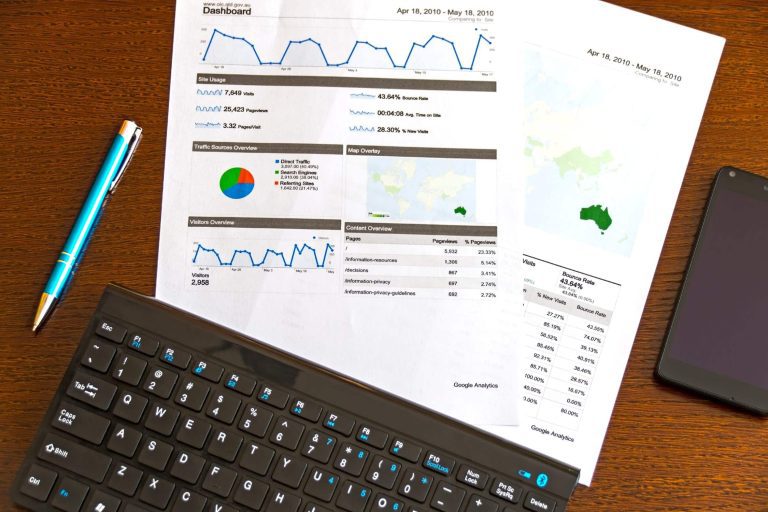Checking your Experian credit report is an essential step in finding out if you are a victim of identity theft. About 15 million Americans have their identities stolen each year. Simply put, that’s about seven percent of adults.
Not only does identity theft create massive inconvenience for victims, but also financial losses total in the tens of billions annually. It is essential to check your credit report regularly to ensure that you are not a victim.
What Is Identity Theft?

Image CC0, by James Sutton, via Pexels
Identity theft is one of the fastest-growing crimes in the country. As mentioned, millions of Americans discover they are victims every year. There are numerous types of identity theft, but you should have a basic understanding of at least the most common forms.
Financial identity theft
Financial identity theft occurs when your bank account or credit card information is stolen. The thief will then purchase goods and services in your name. Since they will generally max out your accounts, you may find yourself unable to buy food, at least until you resolve the problem. Also, you may have trouble opening lines of credit.
Criminal identity theft
Criminal identity theft occurs when someone commits a crime under another person’s name. If someone managed to steal your driver’s license or social security information, or both, you might find that you have an unearned criminal record. This can be embarrassing if the police come knocking on your door. You may even learn that you have infractions on your driving record that you didn’t earn.
Medical identity theft
If a criminal somehow manages to steal personal information, he or she may use it to get medical care for themselves. This can lead not only to financial losses but future healthcare issues because of inaccurate medical history. This type of identity theft could kill you.
Social Security identity theft
If someone steals your social security number, the thieves can use it to take property and money. They can also sell it to undocumented workers and obtain services only available to those with a social security number. With your social security number, a thief could do almost anything in your name. The sky’s the limit.
Tax identity theft
Criminals could file fraudulent tax returns using your information. This could cause you to have difficulty if you attempt to submit legitimate tax refunds or result in even more significant problems with the IRS, such as audits, and added fees and penalties you didn’t earn.
Child identity theft
Even children can be victims of identity theft. A child’s social security number can be used to obtain loans, defraud the government, or commit other crimes. If you have a son or daughter, it is essential to secure their information as well as your own.
What is a Credit Report?

Image CC0, by Photomatix Ltd., via Pexels
If you have open accounts, have obtained loans, or pretty much exist as an adult, the three major credit bureaus have a history of all of this. This is known as your credit report. Think of it as your financial disciplinary record by which lenders and others will judge your financial trustworthiness.
On your Experian credit report, you’ll see your current and previous addresses, social security numbers, and employment history. You’ll also find a credit history summary, which contains some precious information.
Is there a lien against your house? Court judgments against you? Did you open a line of credit at Skippy’s National Bank on 23rd and Main in Charleston, West Virginia in 2007? Your Experian credit report shows this information and more.
You’ll also see whether you have been making your payments on time and what percentage of your available credit you have used. Your Experian credit report also shows inquiries into your history and a wealth of other information.
Typically, your Experian credit report will retain negative information for seven years, though bankruptcy filings will appear for ten years. There’s no time limit on positive data. In other words, if you have a long history of making on-time payments and your accounts are older than your firstborn, this will help you immensely.
Check Your Credit Report Regularly
Financial institutions use credit reports to assess a person’s creditworthiness if they apply for a loan. But many don’t realize credit reports are used in numerous other situations, including in determining insurance rates.
Sometimes, agencies and reporting companies make mistakes. Information that shouldn’t be on your credit report at times may appear on your report. It’s a good idea to know exactly where you stand financially. Because this is important information, the Fair Credit Reporting Act allows you to get your free Experian credit report as well as reports from the other credit reporting agencies once per year.
One of the most important things you can do as an adult is to ensure your Experian credit report, and others are accurate, as the reporting agencies use these reports to determine your credit score. Each credit bureau’s information may be different, so be sure to check all three.
Who Are the Credit Reporting Agencies?
Credit reporting agencies collect information about where you live and work as well as how financially responsible you are. They sell this information to employers, insurers, creditors, and others who want to assess how big of a financial risk you are.
Equifax, TransUnion, and Experian are the three major credit bureaus. Checking your report from one bureau isn’t enough. Your Experian credit report may have information your TransUnion or Equifax report does not. Because of this, you need to get all three to see a full picture of your credit history.
What You Should Do if You Are a Victim of Identity Theft
President Barack Obama said in 2014 that:
“The idea that somebody halfway around the world could run up thousands of dollars in charges in your name just because they stole your number or because you swiped your card at the wrong place and the wrong time, that’s infuriating. … For victims, it’s heartbreaking. And as a country, we’ve got to do more to stop it.”
So what should you do if you think you are a victim? First, you should lock down the affected accounts. If offered, sign up for credit monitoring. If your data is compromised because of a breach, many companies will provide this for free in a letter notifying you of the issue.
Of course, you should also pull up all of your account statements and scan for unauthorized charges. If you find any suspicious transactions or unauthorized charges, make sure to report them to your financial institutions. You should also go over your credit report from each bureau with a fine-tooth comb. Doing so can be time-consuming, but it is crucial.
If necessary, you should contact the credit reporting agencies and request a temporary freeze.
Here’s how to contact the credit reporting agencies
When you want to put a temporary freeze on your credit, you will need to contact the credit reporting agencies. Fortunately, this is a very straightforward process as they all have websites to help you. If you prefer, you can also call them.
How to contact Experian
You can call Experian at 1-800-349-9960 or visit their website to add or lift a security freeze.
How to contact TransUnion
You can call TransUnion at 1-888-909-8872 or visit their security freeze website.
How to contact Equifax
You can call Equifax at 1-800-349-9960 or stop by their website to place a freeze.
You can also contact Equifax, TransUnion, or Experian if you find the inaccurate information you wish to dispute. Because of the importance of ensuring your report is accurate, this can be just as important as clearing up fraud.
How to Get Your Experian Credit Report

Image CC0, by Martine Savard, via Pexels
If you’re wondering how to get your Experian credit report and others, you’ll be glad to know the process is not at all complicated. Experian, TransUnion, and Equifax jointly operate annualcreditreport.com. The credit bureaus created this website to comply with their responsibilities under the Fair Credit Reporting Act.
You’ll need to enter a lot of personal information and to verify accounts that you own. For this reason, be sure to access the website from a secure location.
Your credit report is an essential line of defense against identity theft. Be sure to check your reports at every opportunity. Your financial life (and in some cases your actual life) may depend on it.
Featured Image: CC0, by NegativeSpace via Pexels

